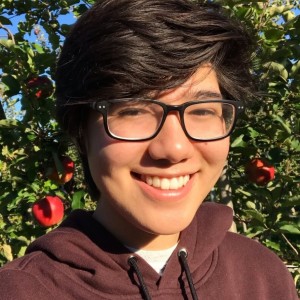
Needle
Wang
University of Rochester, Rochester, NY
Major: Brain and Cognitive Sciences BS
Needle is studying Brain and Cognitive Sciences at the University of Rochester, but he is originally from Boston, Massachusetts, where he lives with his parents, younger brother, and elderly dog, Puka. His father is Chinese-American and has family in California, and his mother is Brazilian. He and his brother grew up speaking Portuguese and English and he has since picked up some Spanish, which inspired him to pursue a minor in Latin American Studies. In his free time, Needle enjoys taking long walks and briefly dabbling in random activities and hobbies, including sourdough bread baking, playing guitar, and gardening.
Needle had previously worked as a tutor for elementary, middle, and high school students, and while he enjoyed supporting each student with their unique needs in various school subjects, over time he noticed that a number of students were running into similar struggles, and that students often lacked confidence in their science and math courses especially. Needle's experience working with these students brought his attention to some of the issues with the way that STEM classes are taught in lower education, and although he's not sure what he wants to do after college, he believes that it is critical that we question the current system by which we educate children and young adults and consider ways to improve STEM education, from elementary school through higher education, to ensure that it is accessible and engaging to everyone.
This summer, Needle is working with Dr. Scott Franklin and Dr. Desirée Forsythe to investigate the impacts of RIT’s Howard Hughes Medical Institute Inclusive Excellence initiative on both the leadership team of the initiative and the faculty that participated in the IE cohorts, a year-long workshop series that discussed topics of inclusion, diversity, and equity in science education. Under his mentors, he is helping to develop and lead a series of interviews of the IE leadership team to explore some of the personal and professional successes and challenges that they experienced working together to create and run the program. He is also interviewing faculty who have gone through the IE cohorts to understand the program’s impact on their ability to implement inclusive strategies in their classrooms, as well as how the faculty have engaged with the workshop content in both personal and professional spaces. Through these two projects, Needle and his mentors hope to further shed light on the internal workings and impacts of DEI programs in academia.